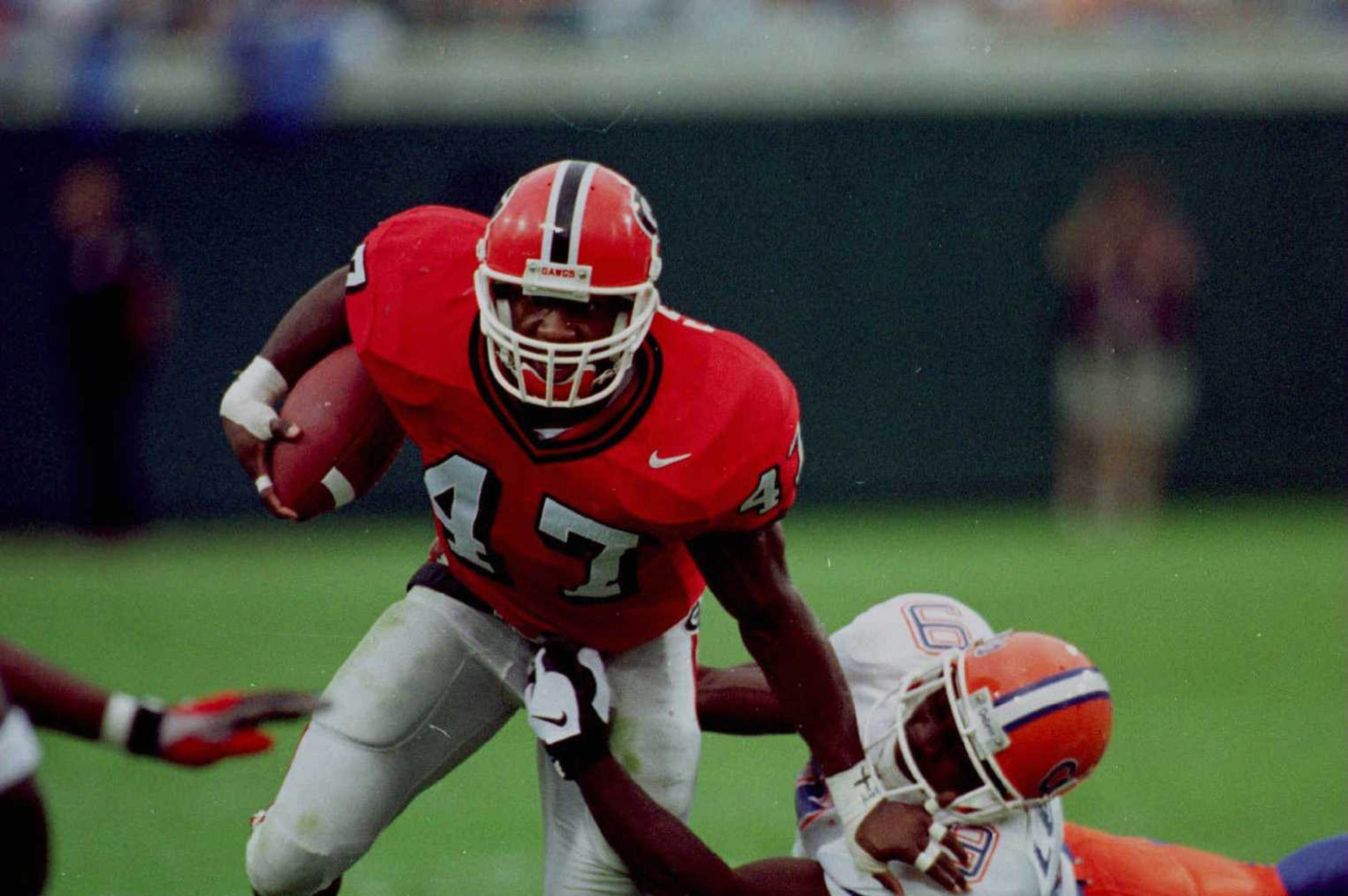Muhammad Ali wasn’t ‘The Greatest’ just for what he did in boxing
It was 1996, and Evander Holyfield wasn’t happy. His hometown was about to host the world’s biggest sports event, and Atlanta’s most famous sports resident and former Olympian had hoped he would be the one asked to light the cauldron in the Olympic stadium, signaling the start of the Centennial Games.
Now he was being told otherwise.
"I wanted to light the stadium torch, but they told me I was just going to carry the torch and they had somebody else who would light it," Holyfield said. "I wanted to know who this person was because I was a champion, I was in the Olympics, I lived in Atlanta and I was probably the most popular person here. Then I looked up and saw Ali. I was blown away. Here's a guy who did so many things, won humanitarian awards and meant so much to so many people. All I did was box. I thought, 'OK, they picked the right guy.'"
There are great athletes. Then there are iconic figures. We remember the icons not just for what they did in the athletic arena, but what they meant to us away from it. Maybe it was breaking a color barrier, enduring racism, standing up for social justice, questioning leadership, protesting an unnecessary war.
There are reasons we remember athletes such as Jackie Robinson, Jesse Owens and Muhammad Ali before we remember others.
Muhammad Ali has left us. He was known as “The Greatest.” That nickname should be buried with him.
He was like nothing we had ever seen before in a boxing ring. He was like nothing we had ever heard before out of it.
"I've wrestled with alligators, I've tussled with a whale. I done handcuffed lightning, and thrown thunder in jail. You know I'm bad. Just last week, I murdered a rock. Injured a stone, hospitalized a brick. I'm so mean, I make medicine sick."
Ali was brash. Ali was smart. Ali was black.
He didn’t want to fight in Vietnam. A lot of young men didn’t want to fight in Vietnam, but most of them weren’t black and powerful and didn’t have the platform from which to preach and rhyme. They had not won an Olympic gold medal for their country, like Ali did. They weren’t willing to be stripped of their livelihood at the peak of their career and carry their protest into a jail cell.
Many called Ali a draft dodger. He didn’t dodge anything. He stood there and threw haymakers.
“I ain’t got nothing against no Viet Cong; no Viet Cong never called me n******.”
I wasn’t supposed to like Ali when I was growing up. I was supposed to like Joe Frazier. Or anybody who was fighting Ali.
Frazier was quiet, humble. Ali was loud, self-absorbed. Frazier brought people together. Ali was polarizing.
He refused induction in the draft. That was it. He was dead in my house — and by my house, I mean my parents’ house. He went from sports hero to American villain that quickly.
Our home wasn’t unlike many others in white America. We didn’t fully comprehend the war and couldn’t fully grasp the plight of African Americans in the 1960s. We had no idea what Ali (Cassius Clay) endured as a youth in Louisville. I only knew I grew up being told that Ali was the bad guy.
In March 1967, he knocked out Zora Folley to improve to 29-0. One month later, he refused induction into the armed forces, was convicted of draft evasion and given a five-year prison sentence. He remained out on appeal and later saw the conviction overturned in the Supreme Court. But he was stripped of his boxing championship and his license and banned for three years.
Emotions soon turned against Vietnam. Sympathy for Ali’s stand grew. People gained an appreciation for all he had overcome after standing up for what he had believed in.
Ali's boxing comeback began Oct. 26, 1970 in the strangest of places: in Atlanta. He still was a pariah in many parts of the country, but Atlanta opened its doors to him. In later years, former Atlanta mayor Sam Massell told the Journal-Constitution's Steve Hummer, "Although I'm not fond of boxing, I felt he had a right to earn a living."
He faced Jerry Quarry in the old Atlanta Municipal Auditorium. The bout was scheduled for 15 rounds. Ali stopped him in three.
Soon, he was a hero again. Soon, he reigned over his sport again. He lost that first part of a trilogy with Joe Frazier in the “Fight of the Century” in 1971, but he eventually won the title back and defeated Frazier twice.
Years later, Parkinson’s began to take hold. Ali returned to Atlanta for a fundraiser. Late in the evening, a long line formed from the table where Ali was sitting, with people holding items for him to autograph. I anticipated this, bringing with me an old magazine that had Ali on the cover for him to sign. (Autographs generally are frowned upon in the sportswriting industry, but I considered this an excusable departure.)
When I reached the front of the line, Ali took the magazine, smiled and looked up at me. He signed it and then motioned for me to come closer so he could say something.
I bent down and he whispered in my ear: “Careful or it’ll smudge.”
I expected something closer to, “Float like a butterfly, sting like a bee.” But I’ll always have my memory of, “Careful, or it’ll smudge.”
I’ll also have the memories of living in a time when The Greatest was around, both in the ring and out of it.
More Stories
The Latest


